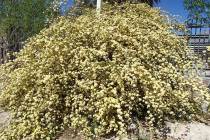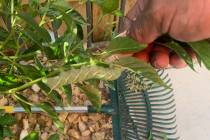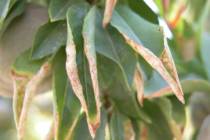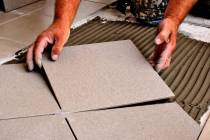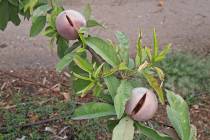Green up your home’s plumbing
Seems like the whole home-building industry is going “green” these days. There are energy-efficient doors and windows, solar roofing panels, high-efficiency refrigerators and freezers; even redesigned toilets and showerheads that use less water.
But those are all products that are easy to see. What about the materials inside your home that you can’t see, like plumbing pipe? Yes, even behind the walls we have “greener” options than our ancestors.
So what makes one system greener than another? When you consider all the variables, from production through service, life and disposal, you might be surprised as to which systems are the most environmentally responsible.
It starts during the manufacturing process. Historically, most plumbing systems were made of naturally forming materials — initially wood and, in more recent history, copper. These are materials that must be depleted from our total inventory of natural resources and literally stripped from the Earth’s surface.
Newer, high-performance materials, such as CPVC (chlorinated polyvinyl chloride), in contrast, consist of fewer, nonrenewable resources. CPVC is created primarily (63 percent to 70 percent) of common table salt, of which there is an almost limitless supply. The remaining 30 percent to 37 percent is derived from petroleum.
Because of its relatively low petroleum content, its production process uses fewer nonrenewable oil reserves than most other plastics and is considered more energy efficient (using 35 percent to 70 percent less energy), depending on pipe diameter.
Since CPVC is very lightweight when compared with metal alternatives, it further requires less energy when transporting both raw CPVC for processing and the finished CPVC-based products.
Another consideration is the performance and service life of the product. Most CPVC plumbing systems on the market today, including FlowGuard Gold CPVC pipe and fittings, are designed for a 50-plus-year service life. That means little waste is generated. More importantly, since a FlowGuard Gold CPVC system is completely immune to corrosion from potable water of any quality, it is virtually maintenance free.
In addition, unlike copper systems, it won’t leach harmful copper or lead to contaminate the water supply. And, its naturally smooth surface inhibits the growth of hazardous biofilms or other potentially harmful bacteria. A European study concluded, in fact, that CPVC outperformed both copper and PEX (cross-linked polyethylene, another type of plastic) with regard to biofilm formation.
A FlowGuard Gold CPVC plumbing system is greener than you might think for other reasons, as well. With its natural insulating qualities, it keeps heat from escaping through the exterior of the pipe, which minimizes energy costs and keeps hot water hotter and cold water colder, longer. This same natural insulation characteristic minimizes condensation which can lead to hazardous mold conditions.
And, it also means less noise pollution. In fact, a national testing company confirmed that a FlowGuard Gold CPVC system is four times quieter than a copper system because of its ability to minimize water flow noise and nearly eliminate banging pipes (water hammer).
Due to the product’s low petroleum content, CPVC will not sustain a flame or support combustion under normal circumstances. The smoke that may be generated from CPVC while it’s burning has been proven to be no more toxic than that from traditional building materials, such as Douglas fir.
With respect to fire hazards, a FlowGuard Gold CPVC plumbing system is also safer to install. Unlike copper plumbing which must be soldered with a torch, the CPVC system is joined using a highly reliable, low-VOC, solvent cement bonding system.
For more information on the “green” benefits CPVC plumbing systems, visit www.flowguardgold.com.










